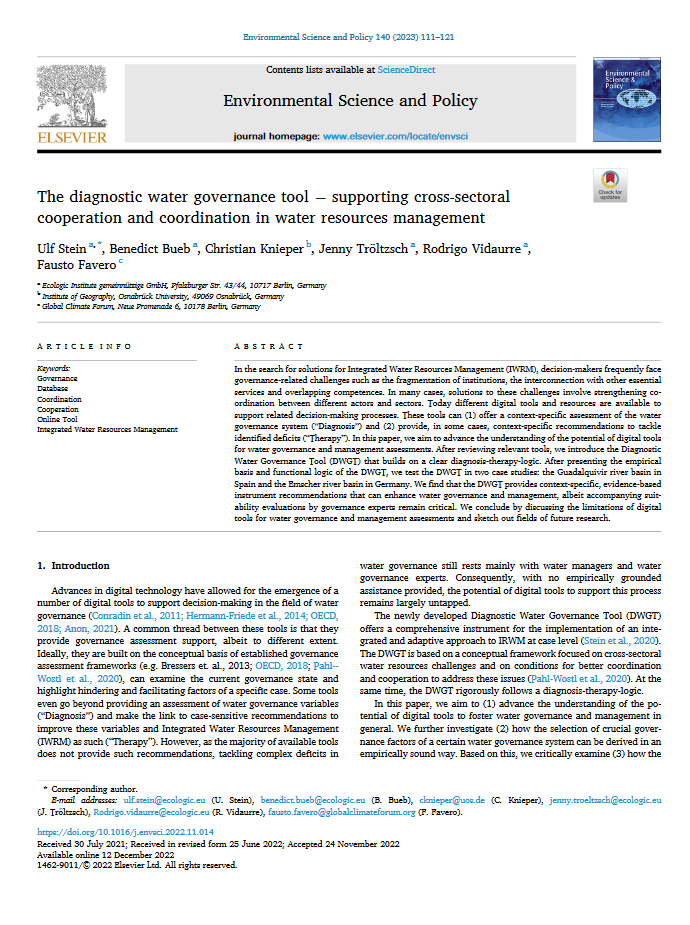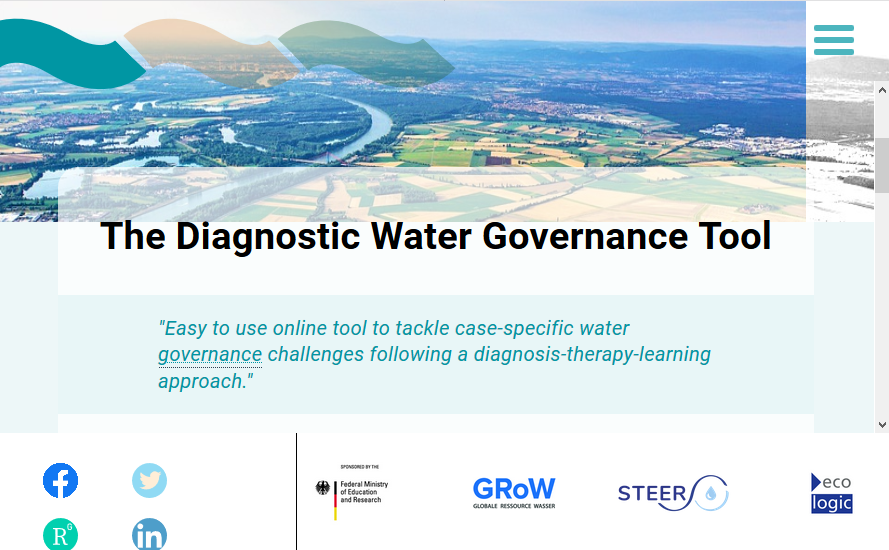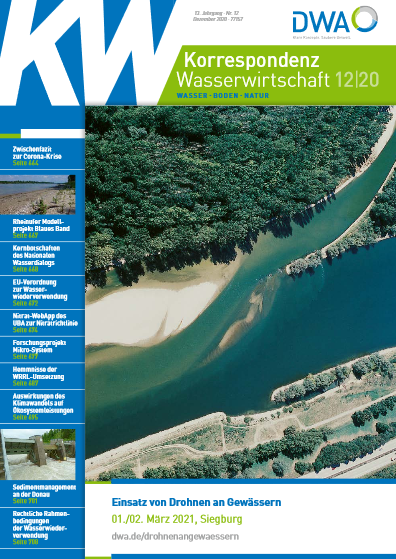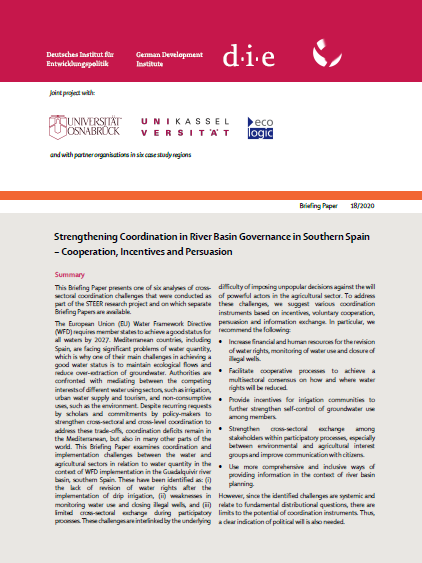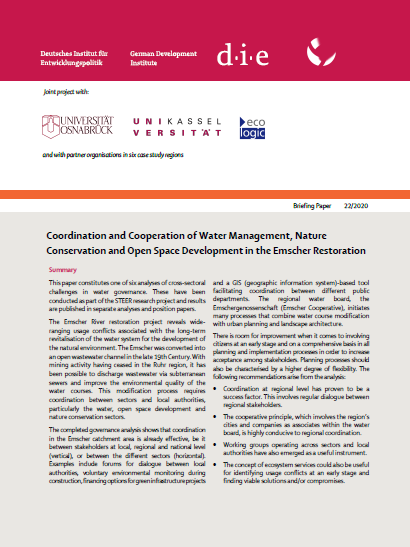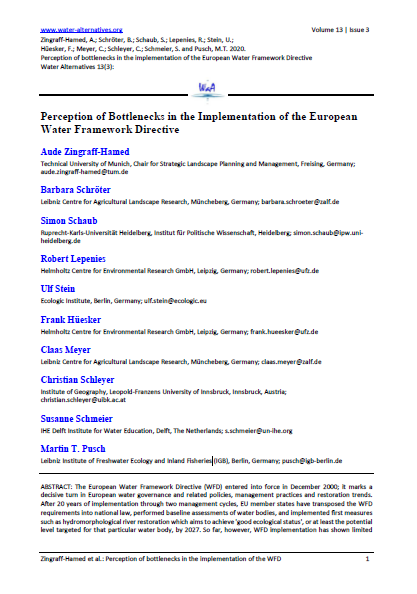Environmental Inequality: Dimensions and Policy Options
- Presentation
- Date
-
- Location
- Berlin, Germany
- Speech
On 22 February 2020, Benedict Bueb of Ecologic Institute was invited to speak on Environmental Inequality at the International Alumni Center (iac) of the Robert Bosch Stiftung. During the workshop "Inequality: From grassroots to policy-making" he presented different perspectives on the topic. He highlighted that not only the social effects of environmental changes and environmental policy decisions, but also access to environmental policy decision-making are often very unequally distributed.
He then outlined the role that think tanks can play in tackling such problems and presented approaches to involve citizens more closely in environmental policy research and decision-making processes.
Using the example of the renaturation of the German Emscher River, which was investigated in the STEER project, he showed how large-scale renaturation projects can create not only ecological but also social benefits in a region marked by structural change. Against this backdrop, he emphasized the importance of established coordination and cooperation mechanisms at different levels and the role of focal actors for successful governance outcomes.
Another speaker was Enrico Botta, OECD, who explained the labour market policy consequences of structural economic change processes (such as the coal phase-out or the expansion of renewable energies) and presented proposals on how these can be designed in a socially equitable way.
In the subsequent question and answer session, Benedict Bueb and Enrico Botta discussed with the workshop participants, among other things, ways to proactively involve stakeholders in tackling local environmental problems.




